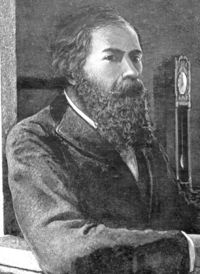Annotation:Year of Jubilo: Difference between revisions
No edit summary |
No edit summary |
||
| Line 2: | Line 2: | ||
---- | ---- | ||
<p><font face="garamond, serif" size="4"> | <p><font face="garamond, serif" size="4"> | ||
'''YEAR OF (THE) JUBILO.''' AKA and see "[[Massa's Gone Away]]," “[[Old Master’s Runaway]].” AKA – “[[Doodletown Fifer (2)]],” “[[Jublio]],” “[[Jubiller]],” “[[Kingdom Coming]].” Old-Time, Breakdown; New England, Polka. USA. G Major (Brody): D Major (Messer, Miller & Perron, Phillips). Standard tuning (fiddle). AABB. An American blackface minstrel song whose words and tune were written by New England abolitionist Henry Clay Work [http://en.wikipedia.org/wiki/Henry_Clay_Work] in | '''YEAR OF (THE) JUBILO.''' AKA and see "[[Massa's Gone Away]]," “[[Old Master’s Runaway]].” AKA – “[[Doodletown Fifer (2)]],” “[[Jublio]],” “[[Jubiller]],” “[[Kingdom Coming]].” Old-Time, Breakdown; New England, Polka. USA. G Major (Brody): D Major (Messer, Miller & Perron, Phillips). Standard tuning (fiddle). AABB. An American blackface minstrel song whose words and tune were written by New England abolitionist Henry Clay Work [http://en.wikipedia.org/wiki/Henry_Clay_Work] in 1862, and tell of the effect of freedom for slaves after their Master had evacuated the Plantation in advance of Union forces. The ancient Hebrews declared a "Jubilee Year" every half century in which all the slaves were freed. Work also composed such songs as the Civil War "[[Marching Through Georgia]]," "[[My Grandfather's Clock]]," and the music for "[[Wreck of the Old 97 (The)]]." | ||
[[File:work.jpg|200px|thumb|left|Henry Clay Work (1820-1891)]] | [[File:work.jpg|200px|thumb|left|Henry Clay Work (1820-1891)]] | ||
<br> | <br> | ||
Revision as of 03:44, 26 December 2014
Back to Year of Jubilo
YEAR OF (THE) JUBILO. AKA and see "Massa's Gone Away," “Old Master’s Runaway.” AKA – “Doodletown Fifer (2),” “Jublio,” “Jubiller,” “Kingdom Coming.” Old-Time, Breakdown; New England, Polka. USA. G Major (Brody): D Major (Messer, Miller & Perron, Phillips). Standard tuning (fiddle). AABB. An American blackface minstrel song whose words and tune were written by New England abolitionist Henry Clay Work [1] in 1862, and tell of the effect of freedom for slaves after their Master had evacuated the Plantation in advance of Union forces. The ancient Hebrews declared a "Jubilee Year" every half century in which all the slaves were freed. Work also composed such songs as the Civil War "Marching Through Georgia," "My Grandfather's Clock," and the music for "Wreck of the Old 97 (The)."

Source for notated version: Hollow Rock String Band (N.C.) [Brody].
Printed sources: Brody (Fiddler’s Fakebook), 1983; p. 294. Ford (Traditional Music in America), 1940; pp. 69 & 339. Messer (Anthology of Favorite Fiddle Tunes), 1980; No. 7, p. 8. Miller & Perron (101 Polkas), 1978; No. 58. Ostling, 1939; No. 13. Phillips (Traditional American Fiddle Tunes, vol. 2), 1995; p. 357.
Recorded sources: Flying Fish FF009, Red Clay Ramblers "Stolen Love." Folk Legacy FSI-74, Howard Bursen - "Cider in the Kitchen" (1980). Fretless 122, Ken Bonner "Old Time Fiddling 1976" (appears as "Jubiller"). Rounder 0024, "Hollow Rock String Band."
